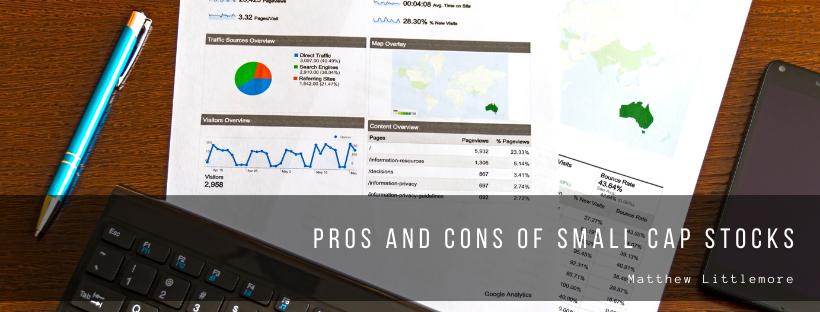Small-cap stocks are investment portfolios for small publicly trading companies. These are companies that have a market capitalization of between $300 million to $2 billion. Market capitalization refers to the value of the company trading multiplied by its current share price.
It’s different from both mid and large-cap stocks. A mid-cap has a stock worth between $2 billion and $10 billion, while large caps have a stock worth above $10 billion.
Pros of Small-Cap Stocks
Small caps have an index that helps measure their performance, from which one notes their advantages as follows.
- Flexibility
Since these are small companies, they are more flexible to changes in the market. It enables them to diversify their operations quickly, to take advantage of an opportunity in the stock market. By doing so, they can keep growing, therefore assuring their investors of a better return.
- Limited Competition in Terms of Pricing
Institutional investors like the banks that invest on behalf of their clients do not mostly invest in small caps. Single and small investors are primarily ones that invest in such portfolios, creating moderate competition. It ensures the prices of the small caps grow at a reasonable rate.
- More Focus
It’s wise to invest in small caps because small companies appear more focused than large companies. Remember that these are companies aiming for growth, so they always look for ways to expand and improve. By investing in such a company, people are assured that their returns will grow over time.
Cons of Small-Cap Stocks
Just like every other investment, they are a few disadvantages related to small-cap investments.
- Low Liquidity
It might not be easy to buy or sell the shares of such companies. It is because most of these companies are not well known. To either buy or sell their shares, people must do some thorough research.
- Limited Dividends
People need to know that these are growing companies, so they tend to retain most of their profits for reinvestment. It does not necessarily mean they will not pay dividends, only that these dividends are less.
- High risk
If one is an investor lacking a high-risk appetite, this isn’t the best investment for them. There’s a high risk with high growth potential for small companies. These companies can shut down anytime due to poor management or financial crises.

